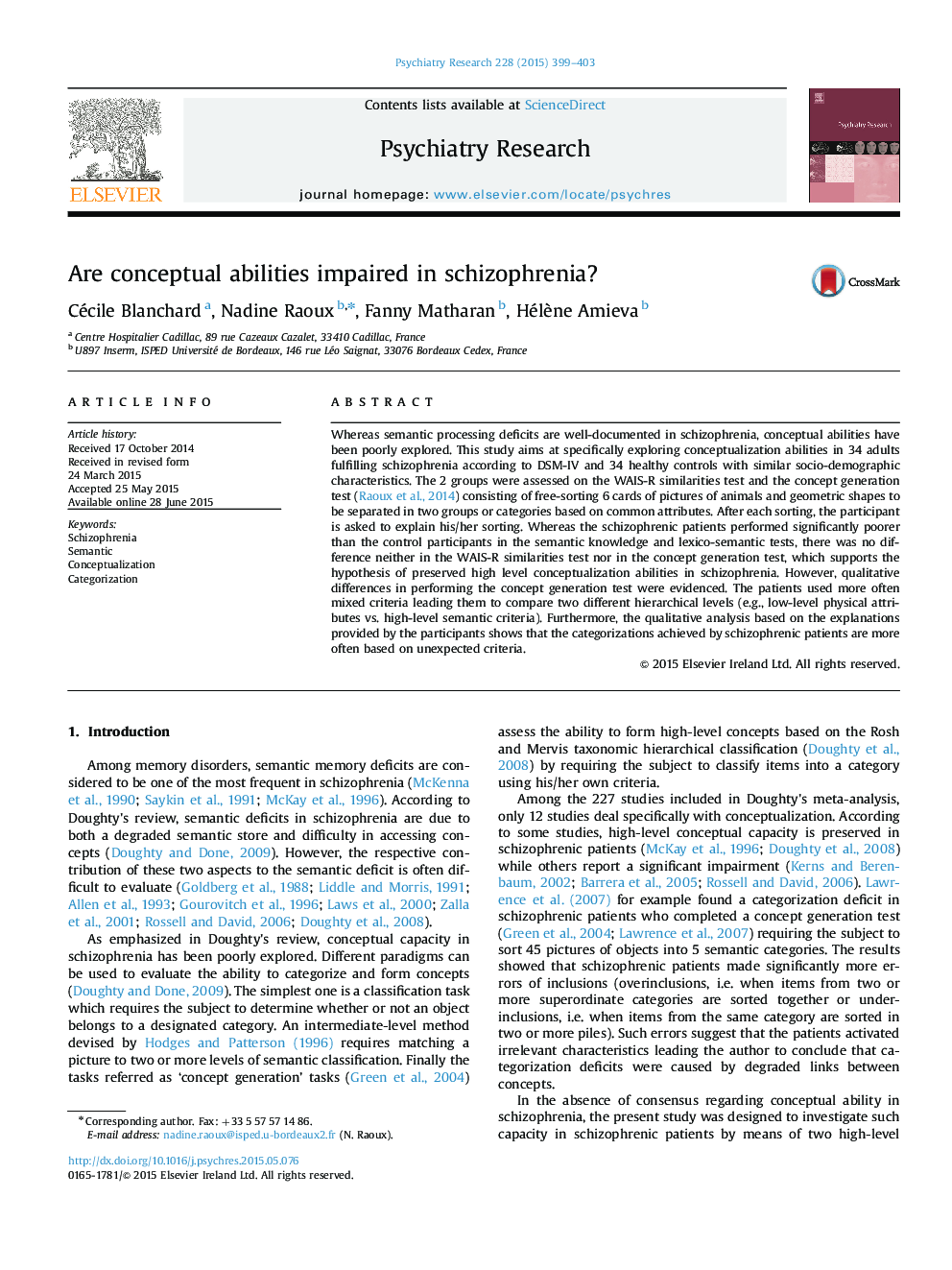| Article ID | Journal | Published Year | Pages | File Type |
|---|---|---|---|---|
| 10303686 | Psychiatry Research | 2015 | 5 Pages |
Abstract
Whereas semantic processing deficits are well-documented in schizophrenia, conceptual abilities have been poorly explored. This study aims at specifically exploring conceptualization abilities in 34 adults fulfilling schizophrenia according to DSM-IV and 34 healthy controls with similar socio-demographic characteristics. The 2 groups were assessed on the WAIS-R similarities test and the concept generation test (Raoux et al., 2014) consisting of free-sorting 6 cards of pictures of animals and geometric shapes to be separated in two groups or categories based on common attributes. After each sorting, the participant is asked to explain his/her sorting. Whereas the schizophrenic patients performed significantly poorer than the control participants in the semantic knowledge and lexico-semantic tests, there was no difference neither in the WAIS-R similarities test nor in the concept generation test, which supports the hypothesis of preserved high level conceptualization abilities in schizophrenia. However, qualitative differences in performing the concept generation test were evidenced. The patients used more often mixed criteria leading them to compare two different hierarchical levels (e.g., low-level physical attributes vs. high-level semantic criteria). Furthermore, the qualitative analysis based on the explanations provided by the participants shows that the categorizations achieved by schizophrenic patients are more often based on unexpected criteria.
Related Topics
Life Sciences
Neuroscience
Biological Psychiatry
Authors
Cécile Blanchard, Nadine Raoux, Fanny Matharan, Hélène Amieva,
